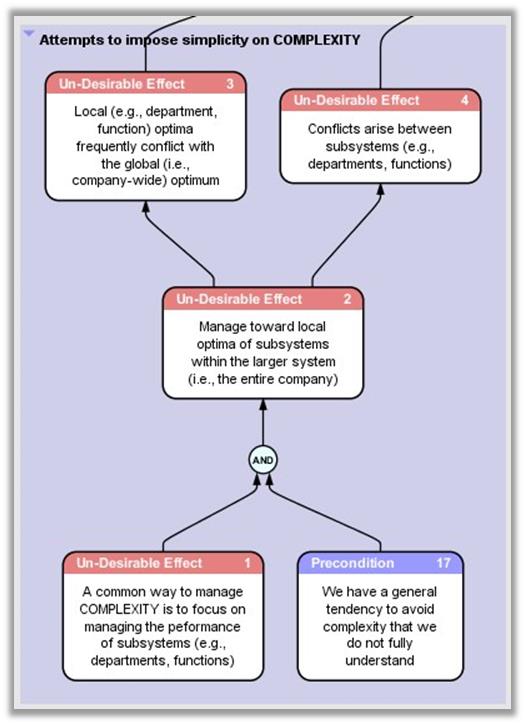Supply chain professionals— folk who are, apparently, much smarter than I am— have told me that, in supply chains, there can be both "good" complexity and "bad" complexity.
Let me try to explain the difference:
| Kind of Complexity |
Description |
| Good" Complexity |
Complexity that functions as a barrier to keep competitors from entering the market with the same or very similar product or service |
| "Bad" Complexity |
Complexity that does not bring with it any known competitive advantage |
While this may be true, my concern is that some supply chain professionals may try to reclassify complexity that brings no competitive advantage as "good" complexity simply because it provides cover for not having to try to get rid of some particularly intransient complexities in the supply chain systems.
What Do We Do With Complexity?

We humans do not really like anything we cannot fully comprehend. We harbor a certain fear of what might come from the things that we do not understand. This fear is generally manifested in avoidance.
This may be what is being manifested when a manager reclassifies—in his or her mind, at least—"bad" complexity into "good" complexity. That does not actually get rid of the complexity, but it does alleviate the fear of actually having to come to grips with it and deal with it.
In complex systems—like companies and supply chains—one of the ways we deal with complexity is to try to break down complex systems into subsystems. In this way, we hope to be able to more clearly comprehend what is going on within the subsystem, even if we cannot fully comprehend all of the complexities in the total system.
In a company, these subsystems generally correlate to departments and functions. In a supply chain, these subsystems break down into departments and functions internally, and into companies (e.g., vendors, distributors) and some external functions (e.g., 3PL, logistics), perhaps.
Un-Desirable Effects (UDEs)
There are undesirable effects that come from attempting to impose our means of getting to some level of simplicity on apparently complex systems.
One UDE is that we attempt to improve the overall system by managing each subsystem—each department or function—toward localized improvement.
This leads to additional UDEs, because systems tend to have more friction between subsystems—read: departments or functions—than within each department or function. The metrics used to manage warehouse inventory levels, for example, frequently have a dramatic impact on other departments and functions like sales, customer service, channel management.
Not infrequently, the metrics we employ in trying to optimize one department or function causes conflicts with the metrics we want to employ in optimizing another department or function.
Using our preceding example, the sales department gets upset when orders cannot be fulfilled because of inventory shortages. The salespeople get measured on sales, of course.
But, the inventory manager just got called on the carpet in the CFO's office because inventory dollars are going through the roof; and the inventory manager gets measured on how "efficiently" he (or, she) manages inventory—generally, meaning higher turnover rates.
System Thinking
There is a solution to such dilemmas. At RKL eSolutions, we frequently help companies get a grasp on how their whole system—read: entire company, or entire supply chain—operates. We do it using tools with impeccable credentials and proven effectiveness. You can learn more about the tools we use by reading here.
More On Supply Chain Technology
Related Articles
Dealing with Uncertainty, Complexity, and Conflict
Supply Chain Complexity as a Competitive Advantage
Reducing Supply Chain Troubles



